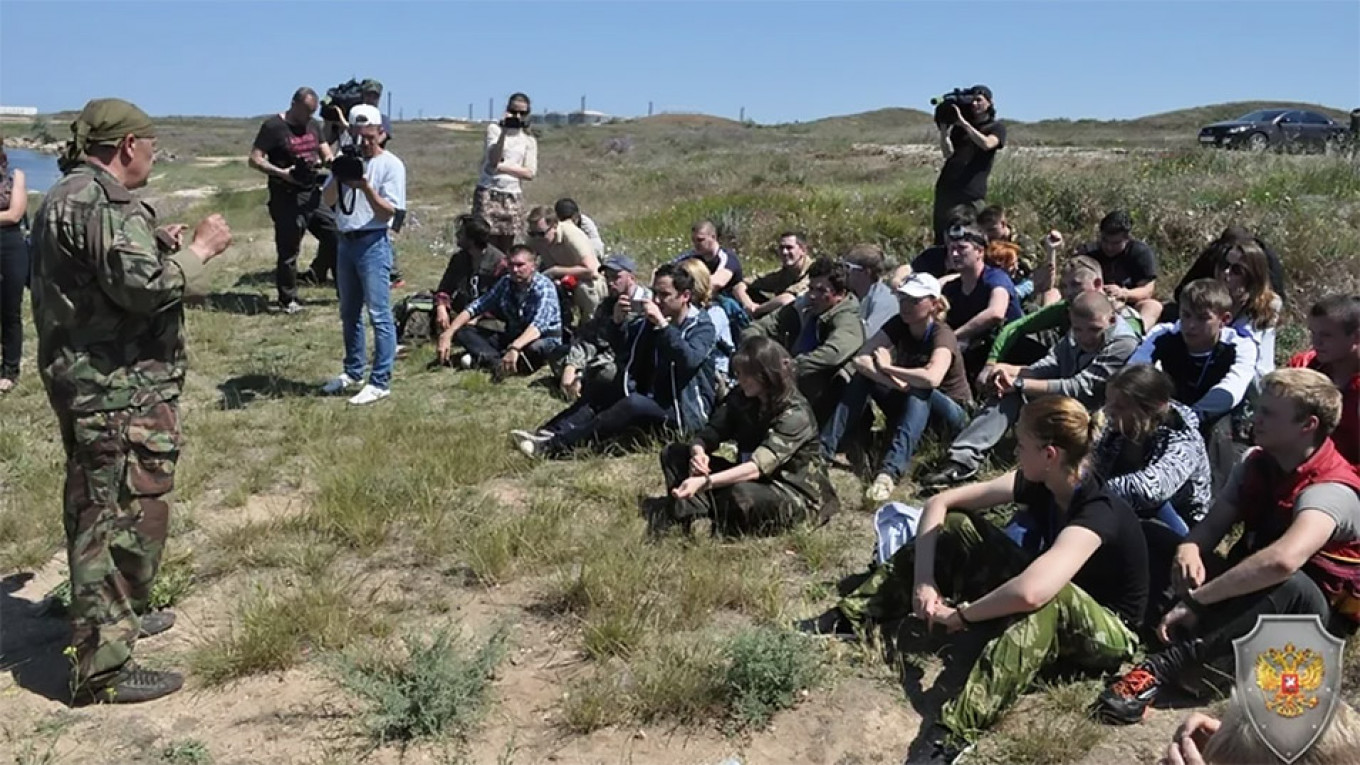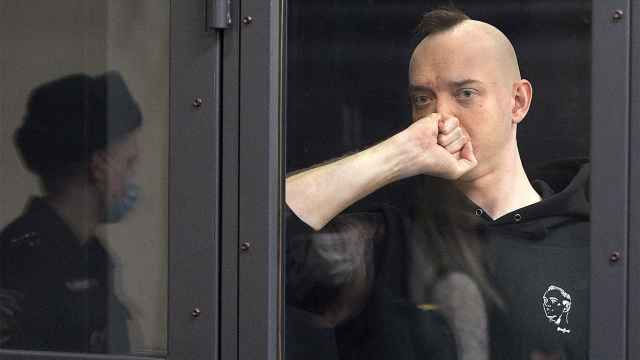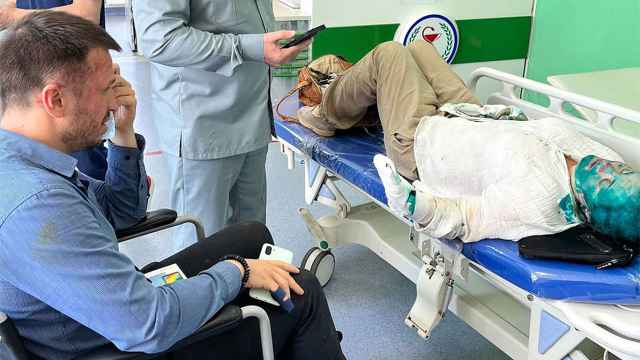A Russian state journalist has sued the organizer of a training course for war correspondents over injuries he says he received during the training.
Svyatoslav Pavlov’s gruesome account of the course at a military site in Crimea included scenes of ripped earlobes and bags placed over journalists’ heads causing asphyxiation. The courses are required for conflict journalists under a media law passed amid a war between pro-Russian rebels and the Ukrainian government that has raged in eastern Ukraine since 2014.
Real-life marines roleplaying as terrorists had kicked, strangled and shot live rounds near journalists taking the course in September, said Pavlov, an editor at the Kremlin-owned Rossiya Segodnya news outlet. One participant was taken away in an ambulance “in a hysterical fit,” Pavlov wrote on Facebook on Tuesday.
“The lectures’ main narrative is that a journalist is a nobody, can’t do anything and knows nothing, and needs to coordinate everything with the security forces,” Pavlov said.
The courses “culminated with a copious sprinkling of the beaten journalists with sheep’s blood,” he wrote.
A photograph Pavlov posted on his profile showed a laceration on his face. Doctors diagnosed him with a concussion and said that he had multiple bruises on the face, body and limbs, according to an attached diagnosis.
Pavlov’s employer had urged him to “forget” about his injuries and promised to pay for his treatment, he said, recounting the employer’s words: “Injuries happen in hockey, right? This is just like in hockey.”
Pavlov has requested military investigators to open a criminal case against the organizers for exceeding their authority, the Mediazona news website reported Tuesday.
Rossiya Segodnya, which replaced RIA Novosti after President Vladimir Putin liquidated it in 2013, oversees a vast network of news outlets that include the pro-Kremlin Sputnik website.
The war correspondent courses have reportedly run since 2006 and have been covered by local media and the Antiterrorism Committee.
“With rare exceptions, journalists in Russia are perceived as service personnel, faceless wooden bobbleheads and not the mouthpiece of civil society,” Pavlov wrote.
A Message from The Moscow Times:
Dear readers,
We are facing unprecedented challenges. Russia's Prosecutor General's Office has designated The Moscow Times as an "undesirable" organization, criminalizing our work and putting our staff at risk of prosecution. This follows our earlier unjust labeling as a "foreign agent."
These actions are direct attempts to silence independent journalism in Russia. The authorities claim our work "discredits the decisions of the Russian leadership." We see things differently: we strive to provide accurate, unbiased reporting on Russia.
We, the journalists of The Moscow Times, refuse to be silenced. But to continue our work, we need your help.
Your support, no matter how small, makes a world of difference. If you can, please support us monthly starting from just $2. It's quick to set up, and every contribution makes a significant impact.
By supporting The Moscow Times, you're defending open, independent journalism in the face of repression. Thank you for standing with us.
Remind me later.






